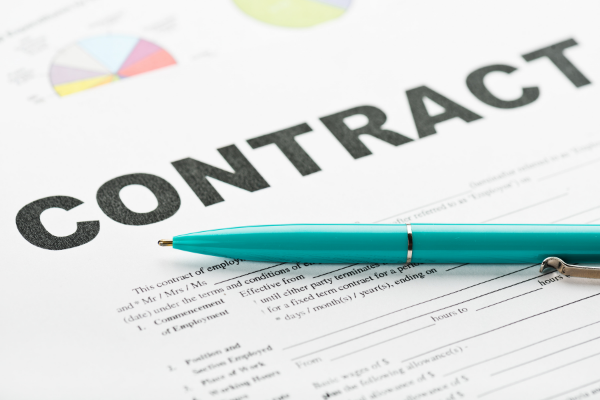3 top tips for non lawyers
In our last Bloody Contracts blog, we explained that businesses do not have to be beholden to lawyers to deal with contracts. In a subsequent webinar, we gave some insights into how legal systems are set up in larger business to manage risk and handle contracts. In these systems, contracts are handled daily by non lawyers.
A large part of handling contracts is reading the blimmin’ things. And in these large companies, many contracts are not even read by lawyers.
The pain of reading contracts
Contracts come in all shapes and sizes and unless, like us anoraks at Lawpoint, you have a particular penchant for reading small print and legalese, there is no doubt that the thought of reading a contract is a very painful one. We get it. It’s not everyone’s cup of tea and certainly not at the top of the to do list (unless you like to deal with least favourite things first). Again, it comes back to that fear of have I missed something, or soooooo many words, not to mention what they might actually mean.
It does not have to be “do or die”.
It’s a shame that many non lawyers feel that their only two choices are to call the lawyer (do) or take the risk of not calling a lawyer (die). But there is a middle ground: with a little bit of forethought and prep, you reduce the pain of reading a contract by being more confident in assessing its contents.
Here are my three top tips on how to read a contract:
Tip 1: Prepare
- As the famous abridged conversation between the Cheshire cat and Alice in Lewis Carroll’s Alice in Wonderland is quoted, “if you don’t know where you are going – any road will do”. In other words, if you don’t know what you’re looking for, how do you know if it’s ok or not?
- Understanding what you want from a contract before you read it is a huge must.
- When we are asked to review a contract for a client, our first question to a client is what you have agreed with customer/ supplier. Our job is to see if the contract reflects the commercial arrangement. Of course we have a view of what sorts of things should be in a contract which reflects a certain type of deal, but in most cases, much of that can be pre-planned, which leads us very nicely into Tip 2.
Tip 2: Create a checklist of what to look for
- Controlling what you are looking for is important or you will be guided by the contract, not by your requirements. That way, you will be able to identify anything that you might need the contract to say (i.e. what’s missing). See our previous blog Silence is golden – or is it?!
- A very easy way to do this is having a pre-written checklist of what to look for in a contract, especially if you don’t have a lot of time to read it.
- The best place to start your checklist is to apply the same thoughts as if you were about to sell or purchase something on a personal basis. For example, if you are buying an expensive car, the same thoughts apply to a business purchase:
-
- What are you expecting for the price (e.g. are there any add ons outside the price)
- When do you pay
- What are your main expectations (e.g. colour/ spec etc )
- What happens if it’s not delivered on time
- What happens if it’s broke
- There is obviously more to a contract than just the above, e.g. liability, data protection etc, but this stuff can be pre-planned.
3. Have faith in your own reading of the words in the contract. “Say what you see”.
- In English law contracts, the main rule is that “it’s the words on the page that count”.
- There are some legal rules that operate in the background that can affect the content, but the main thing to do is focus what the contract actually says.
- So, in many ways its as simple as you have to see it on the page and understand it. If its not clear to you or not there, chances are it’s not clear or it’s not there.
For further information, contact Tracey on 01202 729444 or e-mail tracey@law-point.co.uk.


